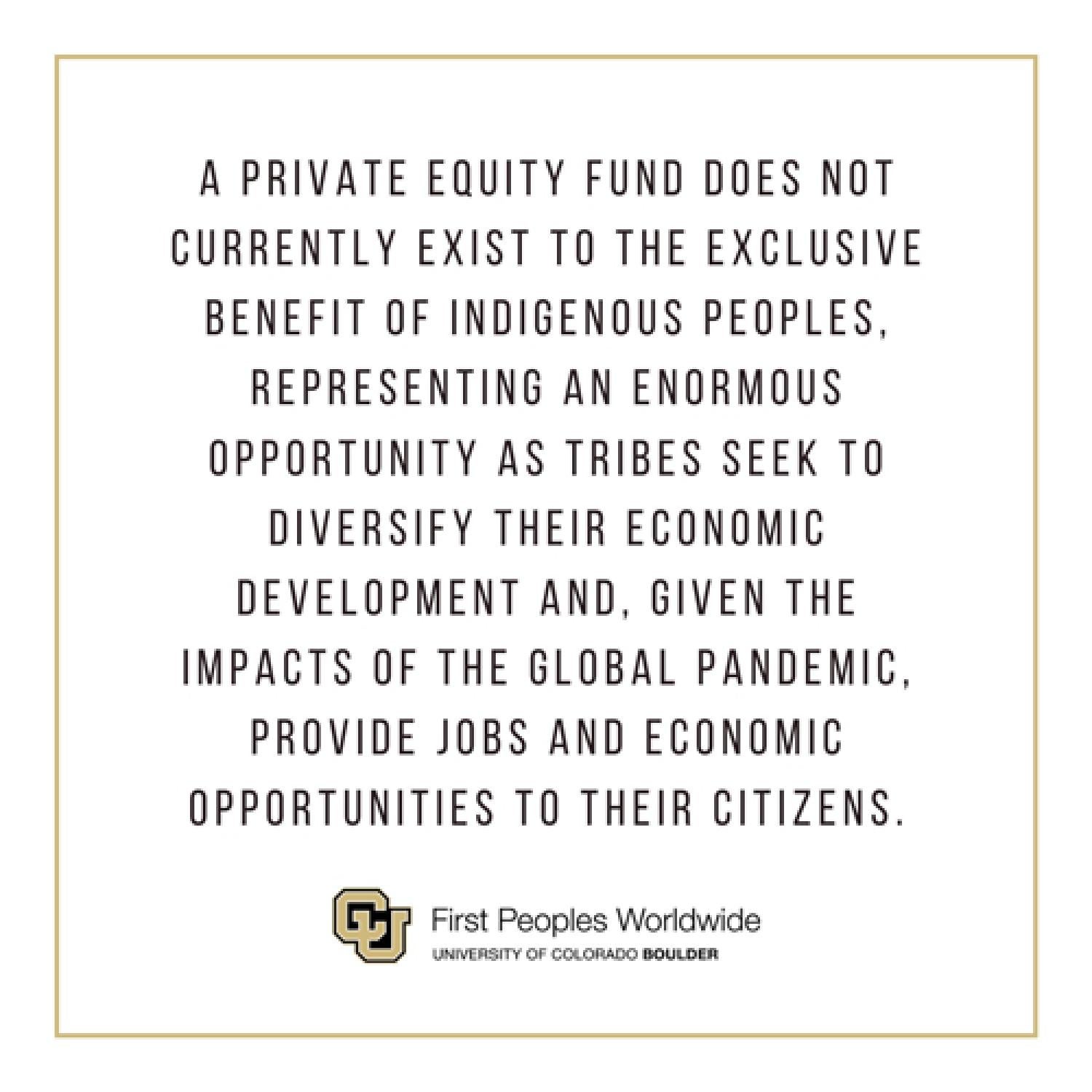Outcome Document: Harnessing Private Equity for Indigenous Peoples

In 2019 and 2020, First Peoples Worldwide conducted research to better understand how to scale enterprise in Indian Country through private equity. Penned by Carla F. Fredericks, Faculty Director of First Peoples, and Kate R. Finn, First Peoples' Executive Director, Harnessing Private Equity for Indigenous Peoples collates and presents the core design tenets of a private equity strategy as a targeted solution to activating the rights of Indigenous Peoples within the private markets. What follows is the introductory abstract from the article.
In the past, development of resources in Indian Country has typically proceeded based on financial deals that privilege outside developers or institutions. These deal structures often subordinate the tribe or Native entrepreneurs’ participatory rights and commodify resources by separating the economic and social impacts of the project, even though revenue is based on use of the tribe’s resources and the tribe is responsible for the socio-economic wellbeing of its citizens. This detrimental pattern compounds the ongoing issue of lack of access to private capital that is otherwise necessary to vision long-term economic prosperity. At its root, the scarcity of capital hinders Indigenous Peoples’ ability to activate their right to self-determination because they are fundamentally limited in the ways they can seek and create economic growth aligned with sustainable development and Indigenous values. Tribes often find themselves having to choose between any access to capital, and capital that may not align with their self-determined goals.
However, there is significant economic opportunity within Indian Country that is ready to be scaled to the benefit of tribes, Native entrepreneurs and investors alike. This is especially true in the renewable energy sector, where there exists economic potential of over $75 billion in project investment for solar and wind energy. Renewable energy is clearly a growth sector that offers economic and social benefit to Native communities.
Concurrently, socially responsible and impact investing have become mainstream, as over the last decade investors seek to maximize financial returns both by avoiding environmental and social risks and by seeding sustainable development aligned with regenerative finance principles. In the past, investment and growth opportunities based on considerations of Indigenous rights and values have been generally limited to small scale capital and grants but impact investors are increasingly searching for investments that strengthen their double bottom line approach. Given the opportunities and readiness in Indian Country to diversify towards renewable energy projects and investor readiness to deploy large-scale capital, bringing impact and Indian Country together could catalyze a new phase of sustainable economic development for Indian Country.
This article details research to better understand how to bridge the need for large-scale financing in Indian Country, with a particular focus on advancing private equity as a potential means to align financial success with impact-oriented values such as tribal sovereignty and social wellbeing. The methodology includes desk-based research as well as consultations with experts and partners, and this article details 1) the ecosystem of interest and need for large-scale Indian Country development, 2) the core values that must center an Indigenous-focused investment vehicle, and 3) the necessary components of a private equity strategy aligned with core values. The findings show the incredible readiness and opportunity that exists for delivery of large-scale and impact-aligned private capital to tribes, tribal enterprise and Native entrepreneurs.
See also: Stakeholder Consensus: Opportunity Abounds for Indigenous-Led Private Equity.

